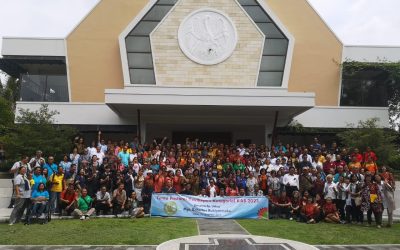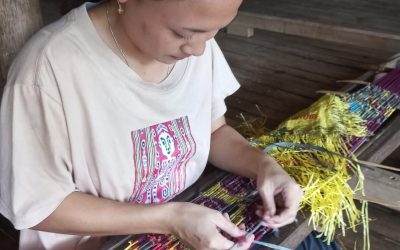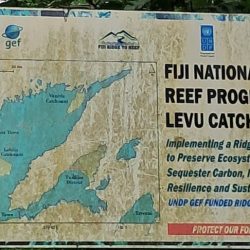The title “skill development and new educational methodologies: focusing on reform, digitalization, student well-being, and teaching effectiveness” accurately reflects the most current and impactful themes in education today. It addresses significant trends such as educational reform, the rise of digital learning, the importance of student well-being, and the ongoing focus on teaching effectiveness, echoing leading educational research and academic titles for future.

Source : https://marzanoresearch.com/
You probably already guessed this first one, it’s AI. Interest in artificial intelligence for educational purposes has grown dramatically, with search volume growing 20x over 5 years. Whether you’re analyzing data, creating lesson plans, improving accessibility, differentiating instruction, or using it as a supplemental tutor, there are hundreds of applications for AI chat programs and education-specific AI tools ( Marzano, 2025 ).
Hybrid learning is increasingly establishing itself as a fundamental component of education, not just an emergency necessity, especially at the higher education level. Education leaders need to note that by 2030, more than half of higher education institutions plan to expand their hybrid learning offerings, as reported in a recent analysis. The extremely high satisfaction of students with virtual learning—93% according to administrators must be prepared to make online education a long-term focus in modern academia.
This change has significant implications for institutional planning, from infrastructure investment to workforce models. Schools are finding that the hybrid approach not only offers cost efficiencies but also creates new opportunities for students and teachers. Education professionals must anticipate the ongoing evolution in hybrid learning implementation ( Marzano, 2025 ).
The education sector faces critical challenges heading into the new year, with teacher recruitment and retention rates reaching crisis levels. For example, teachers are facing a worrying trend, they are considering leaving their teaching careers within the next two years. This deficit is particularly severe in certain fields.
Forward-thinking education leaders should consider integrating a comprehensive learning framework that encompasses academic and personal development, from early childhood education to higher education, and includes self-awareness, conflict resolution, and interpersonal skills. Some educational institutions have already begun to explore innovative approaches, such as adapting traditional assessment systems to take into account soft skills such as communication and perseverance, as well as subject matter comprehension. ( Hay.M, 2024 ).
Soft skills such as communication and perseverance are increasingly recognized as essential components of a comprehensive education in 2025. These skills—along with other interpersonal abilities such as teamwork, flexibility, and emotional intelligence—help students succeed not only academically but also in their future careers and daily interactions. Communication, for example, improves the ability to express ideas clearly, collaborate effectively, and overcome challenges, while perseverance fosters resilience and a proactive attitude in the face of obstacles.
Integrating soft skills with subject matter comprehension creates a holistic educational approach. Subject matter comprehension, involving a deep understanding of concepts, principles, and their practical applications, is foundational for academic progression and intellectual growth ( Investopedia, 2024 ).
The last, research highlights that a balanced curriculum combining soft skills and subject knowledge leads to better student outcomes.
Contemporary education must adopt continuous reform to adapt to the rapidly evolving social and technological landscape. Digitalization plays a major role as a driving force, transforming traditional learning environments into dynamic, accessible, and personalized spaces. Prioritizing student well-being is essential as it directly affects academic success and holistic development. Furthermore, improving teaching effectiveness through continuous professional development and innovative methodologies ensures that educators can meet the diverse needs of students and develop skills that are crucial for the future. Overall, these interconnected elements form the foundation of a resilient, inclusive, and future-oriented education system that can prepare learners to face the complexities of the modern world.
Penulis : Pernandus Simanullang, S.S, M,Sn, FM
simanullangpernnadus@gmail.com
Penggiat Seni, Tradisi dan Budaya
Reference,
https://marzanoresearch.com/hot-topics-in-education-2025/
Edmentum. (2024. August 19). Top EdTech Trends Shaping Education in 2024-2025. Edmentum.com. https://www.edmentum.com/articles/edtech-trends/
Gesseducation. (2024, August 23). Back to School: Key Education Trends for 2025. Gesseducation.com. https://www.gesseducation.com/gess-talks/articles/back-school-key-education-trends-2025
Ghent. (2024, April 9). Education Trends for the Upcoming School Year: 2024-2025. Ghent.com. https://ghent.com/blog/2024/04/09/education-trends-for-the-upcoming-school-year-2024-2025/
Hay, M. (2024, November 21). NWEA Experts Share Predictions About Education Trends for 2025. NWEA. https://www.nwea.org/news-center/press-releases/nwea-experts-share-predictions-about-education-trends-for-2025/
Investopedia. (2025, June 12). What are soft skills? Definition, importance, and examples. https://www.investopedia.com/terms/s/soft-skills.asp
IOSR Journal of Business and Management. (2025). A research paper on the importance of soft skills. https://www.iosrjournals.org/iosr-jbm/papers/IEMDR-2025/4,%2019-34.pdf
The Importance of Developing Soft Skills in Education. (2024, August 12). LinkedIn. https://www.linkedin.com/pulse/importance-developing-soft-skills-education-glpqc













